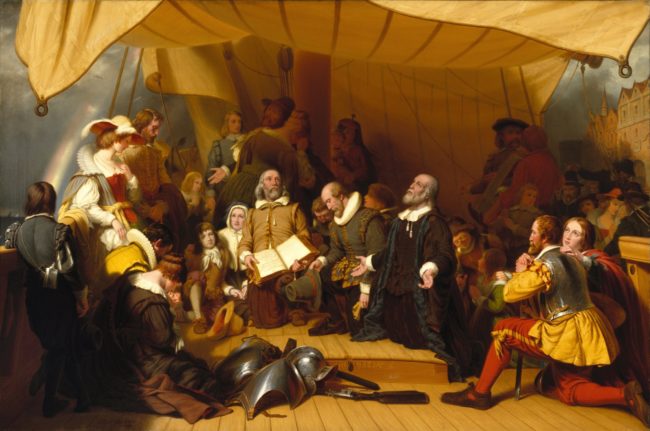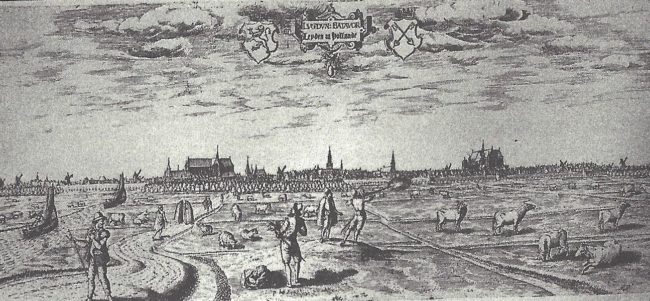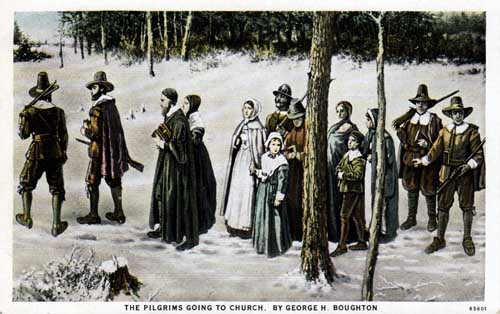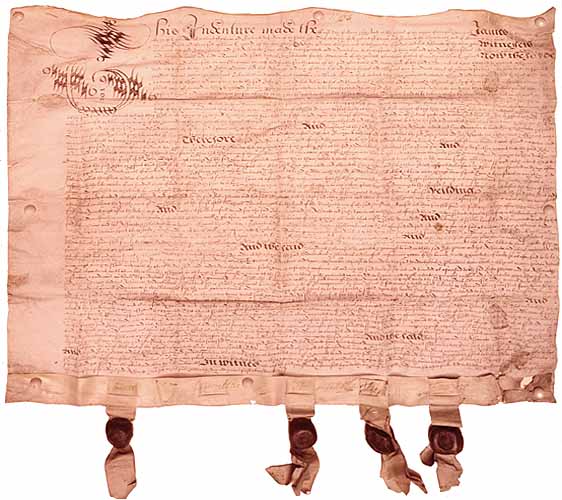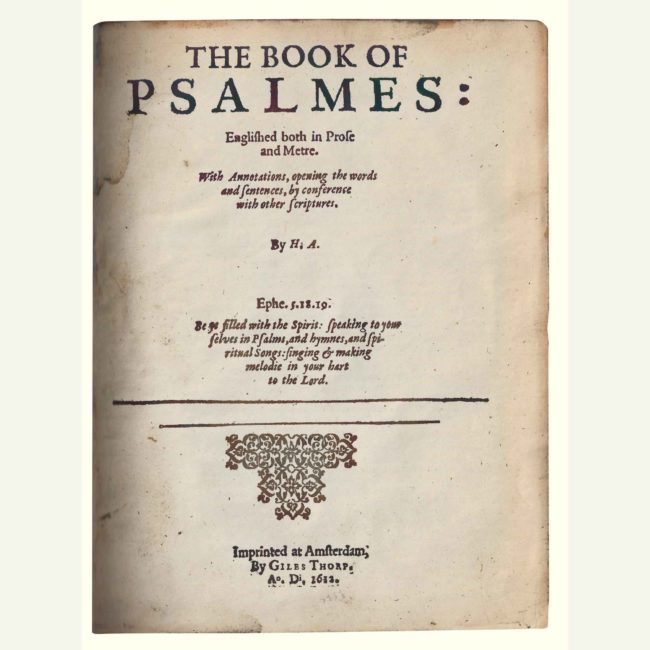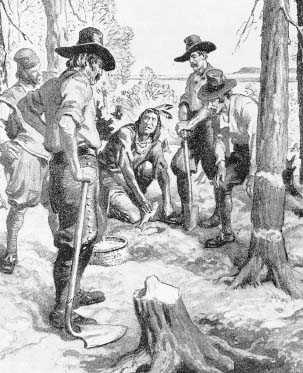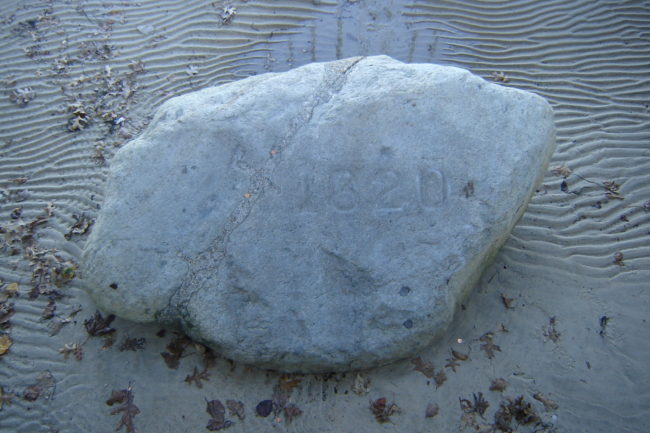Remembering the Loss of the Speedwell after 400 Years
Members of the Leiden Congregation knelt in prayer on the deck of the Speedwell on Wednesday, July 22nd in Delftshaven, Holland. This was captured by artist Robert Weir and shows Pastor John Robinson (with hands outstretched) and William Brewster (holding the open Geneva Bible) and several parents and children in prayer.

